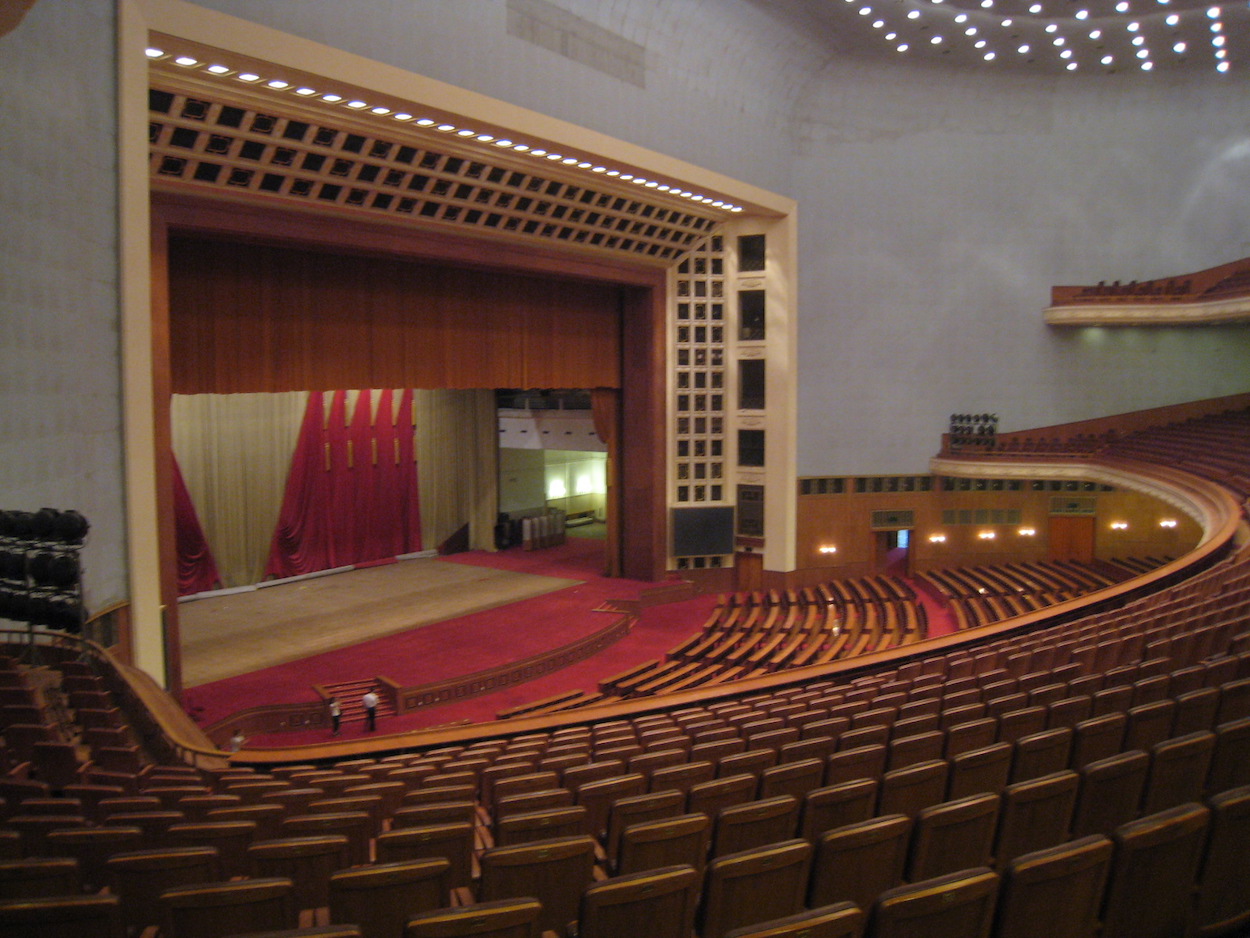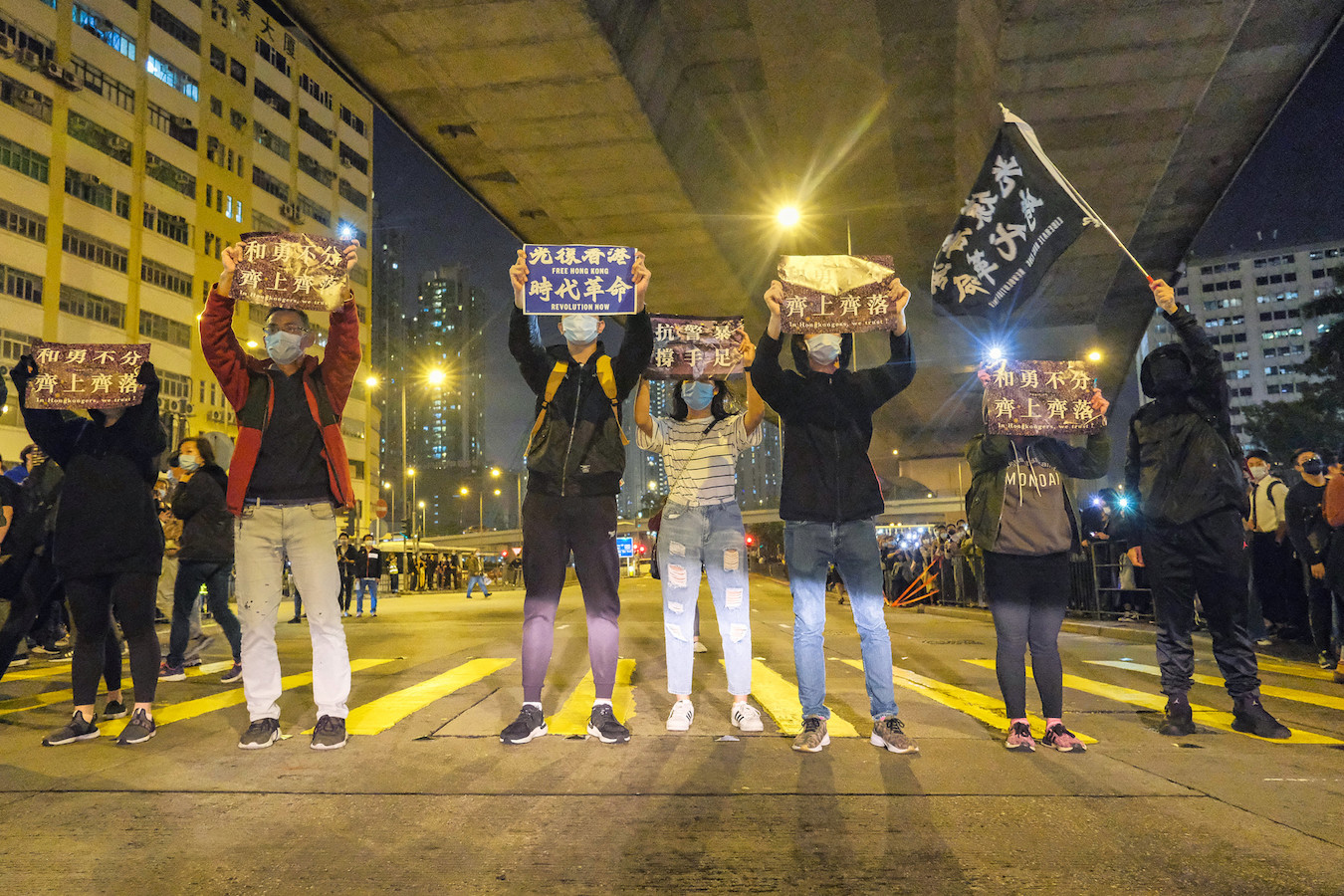by Brian Hioe
語言:
English
Photo Credit: Studio Incendo/Flickr/CC
REPORTS OF plans by China’s National People’s Congress (NPC) to pass security legislation later today have provoked shock and outrage in Hong Kong. In particular, the NPC passing national security legislation would bypass the authority of the Hong Kong Legislative Council (LegCo) altogether. Many have read this as marking the demise of “One Country, Two Systems” and the autonomy of Hong Kong ensured under the Hong Kong Basic Law.
 The auditorium of the Great Hall of the People where the National People’s Congress meets. Photo credit: Acidbomber/WikiCommons/CC
The auditorium of the Great Hall of the People where the National People’s Congress meets. Photo credit: Acidbomber/WikiCommons/CC
The security legislation that the NPC is planning to pass resembles proposed changes to Hong Kong’s Article 23 that the Hong Kong government previously attempted to pass in 2003. The changes to Article 23 would have criminalized treason against China, prompting fears that this would be used to crack down on political freedoms in Hong Kong. This sparked massive protests in 2003, drawing 500,000 onto the streets in protest at a time six years after the 1997 Handover.
However, the security legislation that the NPC plans to pass has a stronger emphasis on “terrorism”, an attempt to draw on the discourse of the global War on Terror to justify crackdowns on political dissidents in Hong Kong. Provisions in the security legislation against foreign interference will also likely be used as part of claims that protesters in Hong Kong have been aided by foreign powers, with Chinese People’s Political Consultative Conference vice chair Zhang Qingli stating that individuals waving foreign flags at pro-democracy demonstrations such as the British colonial flag, American flag, or ROC flag could be construed as treason. It is also thought the Chinese government may set up national security bureaus within Hong Kong after the legislation passes.
In past weeks, the pro-Beijing camp has proposed passing changes to Article 23 again, as well as a bill that would criminalize mockery of the Chinese national anthem. The pro-Beijing camp using physical force to take the chair seat of the LegCo House Committee, physically removing pro-democracy lawmakers, was seen as preparation to pass changes to Article 23 and the national anthem bill.
As such, it proves somewhat of a surprise that the NPC decided to supersede LegCo altogether to try and pass security legislation. It may be that the Chinese government no longer has faith in the pro-Beijing camp to carry out its will in Hong Kong. In retrospect, the actions of the pro-Beijing camp earlier this month may have been a last-ditch attempt to maintain the faith of the Chinese government.
 Photo credit: Studio Incendo/Flickr/CC
Photo credit: Studio Incendo/Flickr/CC
The Chinese government may have decided that the COVID-19 pandemic presents an opportunity to pass security legislation, seeing as protests in Hong Kong have declined in scale and frequency over past months because of COVID-19. The timing of the move may also be to take place before LegCo elections are set to take place in September.
That being said, with the pandemic under control in Hong Kong, protests are beginning to take place again, close to one year after they began against an extradition bill that would have allowed for Hongkongers to be deported to China to face charges. The security law would be a far more severe action than passing an extradition bill, a national anthem bill, or changes to Article 23 because of the blow to Hong Kong’s autonomy in superseding LegCo.
Security concerns have led to a sharp uptick in VPN purchases from Hongkongers, as well as a wave of individuals involved in demonstrations locking down or scrubbing content from social media accounts. This would not be the first time that there have been similar concerns in the past year, with fears that an Internet shutdown could take place after emergency powers were invoked by Hong Kong Chief Executive Carrie Lam in October last year.
At the same time, stocks in Hong Kong tumbled after the announcement of the law, leading to global effects. With calls by American elected representatives to pass sanctions against China, it is to be questioned as to what the actions of the Trump administration will be. The issue could set off a new round of tensions between the US and China, as already aggravated by the US-China trade war and by the COVID-19 pandemic.
Statement by the New Power Party calling for action from the Tsai administration to aid Hongkongers
The Taiwanese government’s Mainland Affairs Council has criticized Beijing’s actions, stating that “The laws of any civilised society should be an umbrella to protect the people, rather than shackles on their freedom.” The New Power Party, which emerged from the 2014 Sunflower Movement, has called for the Tsai administration to set up specific mechanisms to aid Hongkongers, criticizing the Tsai administration for frequently raising Hong Kong during 2020 election campaigning but then doing little to help Hongkongers afterward. DPP deputy secretary-general Lin Fei-fan, one of the leaders of the Sunflower Movement, has also called for such a mechanism to be set up by the government.
It is expected that the weekend will see a round of intense protests, as was the pattern for much of last year before the outbreak of the COVID-19. However, if a new round of protests take place in Hong Kong, a key difference between this year’s protests and last year’s protests is that international media coverage will not be as widespread due to the COVID-19 pandemic. There is little chance for international media to parachute into Hong Kong to cover protests because of mandatory fourteen-day quarantines for individuals that enter Hong Kong at present. International media coverage of a new round of protests in Hong Kong will have to rely primarily on media outlets already present there.

